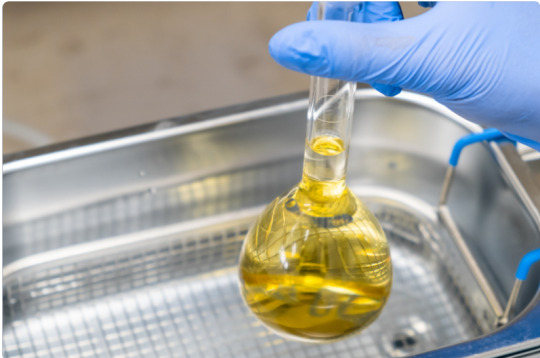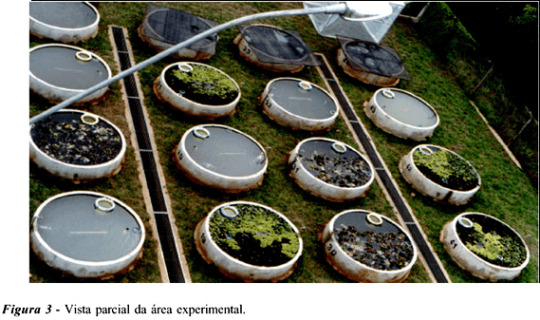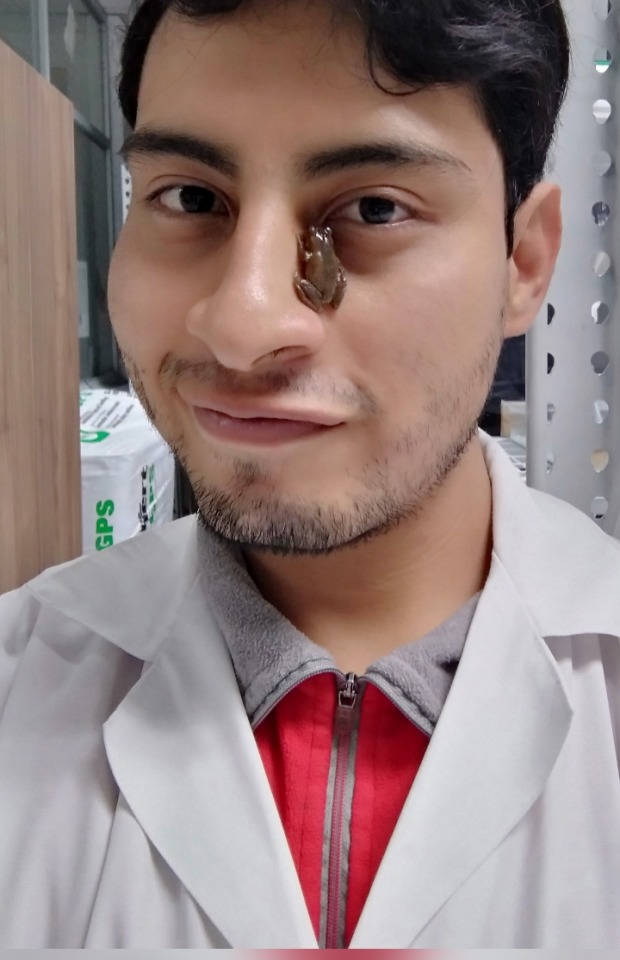#ecotoxicology
Explore tagged Tumblr posts
Text
It's a disturbing thought: At this very moment, tiny crumbs of plastic are trickling through our bodies, a parade of unwelcome houseguests ready to take up residence in some tissue or organ. A wave of new studies has come out recently, and each one seems to paint an ever more vivid picture of how microplastics — and their smaller counterparts, nanoplastics — have infiltrated the deepest corners of our anatomy. The lungs, liver and heart, guts and brain, even the testicles and placenta — nothing seems to be spared. The outpouring of research has brought enormous visibility to how these fragments permeate our daily lives. Long studied in oceans, waterways and marine life, researchers have now shifted focus to human health. A decade ago, Heather Leslie could scarcely find anyone to fund her work in this area. "It seemed like nobody wanted to touch it," says Leslie, a microplastics researcher in the Netherlands whose team was the first to detect these particles in the human bloodstream several years ago. As the work has gained momentum, so have questions about the damage microplastics could be doing inside of us. Researchers tend to be wary about making pronouncements because the field is still in a "pioneering phase," as Leslie put it. And yet there are undoubtedly concerns. Some of the strongest evidence comes from lab studies using animals as well as what's already known about the damaging effects of chemicals added to plastics. A review of the data published Wednesday concludes that microplastics are "suspected" to harm human reproductive, digestive and respiratory health, with a possible link to colon and lung cancer. "This is a signal that we should be acting now," says Tracey Woodruff, a senior author on the study who directs the Program on Reproductive Health & the Environment at the University of California, San Francisco. Susanne Brander, an ecotoxicologist at Oregon State University, says it's not helpful to "elicit a gigantic state of alarm," but she agrees that we already know enough about the health risks to push for substantive changes, including a global agreement to curb the rising production of plastics. As they push to solve the puzzle of microplastics, here are six questions scientists are trying to answer.
continue reading
0 notes
Text

We now offer regulatory consultancy services in the below areas - ☑ Laboratory GLP compliance verifications ☑Study monitoring services for agrochemical and other speciality / industrial chemicals in the areas of Environmental fate studies, Five batch analysis, Residue studies, Physical chemical property testing, Metabolism studies, Ecotoxicology studies, Efficacy studies for household pesticides ☑Assistance in addressing regulatory queries ☑Assistance in preparing study waiver requests ☑Assistance in preparing QSAR reports Curious to know more? Contact us at [email protected]
0 notes
Text
Advancing Ecotoxicology Studies: Collaboration with Clinical Research Organizations in India

Introduction
Ecotoxicology studies have gained significant traction in recent years, driven by mounting concerns regarding the adverse effects of pollutants on the environment and human health. In response to the challenges posed by industrialization and urbanization, ecotoxicology has emerged as a pivotal field of research. In India, the growth of this field has been complemented by the active involvement of Clinical Research Organizations (CROs) in conducting ecotoxicology studies.
Understanding Ecotoxicology
Ecotoxicology, a scientific discipline, delves into the detrimental impacts of environmental contaminants on ecosystems, encompassing plants, animals, and humans. Its overarching objective is to unravel how pollutants, such as chemicals and heavy metals, influence living organisms and their natural habitats. The insights gleaned from ecotoxicology studies hold immense significance, serving as the bedrock for shaping environmental policies and devising strategies to counteract pollution.
CROs in India: A Catalyst for Ecotoxicology Research
Clinical Research Organizations in India have astutely recognized the demand for comprehensive ecotoxicology research. Renowned for their prowess in executing clinical trials, these organizations have expanded their horizons to address environmental concerns. They offer a multidisciplinary approach, amalgamating toxicology, chemistry, biology, and environmental science to gauge the potential hazards posed by pollutants.
Access to Advanced Resources
The distinctive advantage of CROs in India lies in their access to cutting-edge facilities and a cadre of proficient researchers. Leveraging state-of-the-art technologies and methodologies, they scrutinize the impacts of contaminants on a diverse range of organisms, spanning from microorganisms to vertebrates. This meticulous approach ensures that ecotoxicology studies are conducted with the utmost precision and credibility.
Collaborative Initiatives for Environmental Protection
Moreover, Clinical Research Organizations actively engage in collaborations with governmental bodies, industries, and environmental advocacy groups to conduct ecotoxicology studies. These studies play a pivotal role in identifying pollutants of grave concern, assessing their long-term ramifications, and formulating strategies for pollution control and amelioration.
Conclusion
In summation, ecotoxicology studies have assumed an indispensable role in safeguarding both the environment and human health. Clinical Research Organizations in India have assumed a leading role in this endeavor, capitalizing on their proficiencies to carry out rigorous research. Their partnerships with stakeholders guarantee that ecotoxicology findings translate into tangible actions, positioning them as instrumental entities in the realm of environmental science. As ecotoxicology continues to advance, the collaboration between CROs and the scientific community in India will be vital in tackling the intricate challenges stemming from environmental pollution.
0 notes
Text
coming to terms with desperately needing a drastic career change lest i do something even more drastic and i know a lot of people do that in their 30s and that it's okay but going back to school after earning a whole-ass master's degree feels so fucking daunting.
#i went to a researcher's night event thing and am just. fucking. agonizing over wasting 11 years of my life doing shit i fucking hate#and the thing is#i am preparing#but i know i will have to go through this alone#blah blah communtiy etc but the fact of the matter is i know no one will be supportive at fucking all#so maybe i should hit the bricks#delete some social media accounts block people out and just#start everything over#like let's quit the stupid shit we're actually studying ecotoxicology now#but again i need to do it alone and maybe stop talking about it the way i am now#i am alone 99% of the time but i need to reach a new plane of cutting off until i feel ready so form new connections again#i don<t hate the people in my life i just know no one really like. likes me anyore. maybe i am loved but i am for sure not liked that much#and that IS the kicker
3 notes
·
View notes
Text
Aquatic Ecotoxicological Studies Market To Reach USD 750.9 Million By 2030

Aquatic Ecotoxicological Studies Market Growth & Trends
The global aquatic ecotoxicological studies market size is expected to reach USD 750.9 million by 2030 and grow at a CAGR of 7.2% from 2024 to 2030, according to a new report by Grand View Research, Inc. The market is driven by growing environmental awareness, the potential risk of toxic substances on aquatic organisms, and the increasing need for ecotoxicological studies to identify and assess environmental risks and ensure compliance with environmental regulations.
Furthermore, increased focus on environmental sustainability and the requirement for regulatory practices to characterize the long-term effects of toxic substances on aquatic ecosystems and pollution-related issues have fueled the market. Likewise, the studies provide crucial insights into pollutant behavior, bioaccumulation, and ecological pathways, helping to prevent environmental disasters and protect human health. Moreover, the companies are significantly focusing on developing formulations and solutions with lesser threats and adverse impacts on environmental entities. Hence, aquatic ecotoxicological studies are crucial to evaluate the safety of these newly developed formulations on aquatic life before their widespread use.
In addition, the market is significantly growing, with players offering various testing services such as acute toxicity tests, chronic toxicity tests, bioaccumulation studies, biodegradation studies, and others, propelling the market growth. In addition, the growing expansion of facilities for aquatic ecotoxicological studies in various regions across the globe is gaining momentum, driven by a growing demand for environmentally friendly and sustainable options. For instance, in October 2022, Charles River Laboratories announced the ecotoxicology expansion of its 16,000 m2 site to meet the growing demand for various time-critical testing programs. In addition, the company has completed the construction of six new ecotoxicology laboratories and has upgraded its existing facilities. At its Den Bosch site, the company will now offer expertise in ecotoxicology, toxicology, and environmental risk assessments. Additionally, new facilities will include a custom-designed fish culture system for aquatic ecotoxicology studies. Besides, in early 2023 the testing volumes performed are expected to increase when changes to endocrine disruptor testing requirements. This expansion will allow the company's clients to effectively continue their studies in accordance with regulatory changes.
Some of the key players in the market are SGS SA, Charles River Laboratories Inc., Laboratory Corporation of America Holdings, Toxi-Coop Ltd., and others. Market players are adopting key strategic initiatives to boost their market presence and expand their business. For instance, in October 2022, EcoAnalysts, Inc. announced its expansion in Florida after its acquisition of Hydrosphere Research Environmental Services, an aquatic ecotoxicity testing service provider.
Request a free sample copy or view report summary: https://www.grandviewresearch.com/industry-analysis/aquatic-ecotoxicological-studies-market-report
Aquatic Ecotoxicological Studies Market Report Highlights
Based on type, the acute toxicity tests segment dominated the market in 2023. The segment growth is driven by the increasing lethal concentrations of a substance in the aquatic ecosystem rising need to meet global regulations across the chemical sector before the products are marketed, including pharmaceuticals, agrochemicals, biocides, and industrial chemicals.
Based on end use, pharmaceuticals held the largest market share of 39.4% in 2023. The segment growth is driven by significant penetration of aquatic ecotoxicological studies in the pharmaceutical industry to assess the impact of pharmaceutical products and their active pharmaceutical ingredients (APIs) on aquatic organisms and ecosystems.
Furthermore, in terms of pharmaceuticals, the human medicine sub-segment held the largest market share in 2023. The segment is driven by the growing adoption of sustainable practices and the increasing need to meet environmental safety standards, contributing to its prominence in this field.
Europe dominated the aquatic ecotoxicological studies market with a share of 32.5% in 2023. The region's growing pollution in European countries has led to an increasing requirement for ecotoxicological studies to assess the toxicity of chemicals and further detect the effects in the ecosystems caused by the pollutants, contributing to market growth.
Aquatic Ecotoxicological Studies Market Segmentation
Grand View Research has segmented the global aquatic ecotoxicological studies market based on type, end-use, and region:
Aquatic Ecotoxicological Studies Type Outlook (Revenue, USD Million, 2018 - 2030)
Acute Toxicity Tests
Chronic Toxicity Tests
Bioaccumulation Studies
Biodegradation Studies
Others
Aquatic Ecotoxicological Studies End-use Outlook (Revenue, USD Million, 2018 - 2030)
Pharmaceuticals
Human Medicine
Veterinary Medicine
Biocides
Agrochemicals
Chemicals and Petrochemicals
Others
Aquatic Ecotoxicological Studies Regional Outlook (Revenue, USD Million, 2018 - 2030)
North America
U.S.
Canada
Mexico
Europe
UK
Germany
France
Italy
Spain
Denmark
Sweden
Norway
Netherlands
Switzerland
Asia Pacific
Japan
China
India
Australia
South Korea
Thailand
Latin America
Brazil
Argentina
Middle East and Africa (MEA)
South Africa
Saudi Arabia
UAE
Kuwait
List of Key Players in the Aquatic Ecotoxicological Studies Market
Charles River Laboratories, Inc.
SGS SA
Laboratory Corporation of America Holdings
Smithers
Aragen Life Sciences Pvt. Ltd.
Fera Science Limited
Noack Laboratorien GmbH
Eurofins Agroscience Services Group
ibacon GmbH
BRF (Bioscience Research Foundation)
Toxi-Coop Ltd.
Browse Full Report: https://www.grandviewresearch.com/industry-analysis/aquatic-ecotoxicological-studies-market-report
#Aquatic Ecotoxicological Studies Market#Aquatic Ecotoxicological Studies Market Size#Aquatic Ecotoxicological Studies Market Trends#Aquatic Ecotoxicological Studies Market Growth
0 notes
Text
Religion vs Spirituality In Everyday Life
Jesus taught, in Luke 17:20-21, that the Kingdom of God, the LIGHT of God, is WITHIN You. You are that powerful. This knowledge that Jesus taught is the very reason he was crucified. Mary Magdalene, in the Gospel of Mary, tells the apostles who ask her what else Jesus told her that he did not share with them, “There is no such thing as sin.” This is a theological point. Jesus is saying that…

View On WordPress
#bad#build up#chemical pollution#COMPASSION#devil#drink more water#Ecotoxicology and Environmental Safety#empathy#fear#fear-based religion#forgiveness#Free Will#freedom#gender#God#good#Gospel of Mary#government#hell#intersex#Jesus#LGBT#LGBTQ#LGBTQI#LGBTQii#Love#Love without conditions#Luke 17:20-21#Mary Magdalene#religion
1 note
·
View note
Text
The tropics are home to more than 75% of all species and are projected to support 50% of the world's human population by mid-century, but little is known about mercury pollution in these life-filled regions. A new study published in the journal Ecotoxicology sheds light on the problem by focusing on tropical birds. Researchers analyzed feathers collected from nine countries across Central America, South America and the West Indies and discovered some of the highest mercury concentrations ever found in songbirds, with one green kingfisher having 30 times the amount of mercury considered safe. In many cases, gold mining was the root of the problem, said Chris Sayers, lead author of the study and a UCLA graduate student in ecology and evolutionary biology. "The most important finding of our study was that mercury concentrations were nearly four times higher at sites impacted by artisanal and small-scale gold mining activities," he said.
Continue Reading.
141 notes
·
View notes
Text
A recent study published in the open-access, peer-reviewed scientific journal Ecotoxicology and Environmental Safety has found that women exposed to pesticides face a 41 percent higher risk of spontaneous abortion compared to those with minimal or no exposure.
It found that exposure to organophosphate pesticides was the most common exposure type, though the study examined various pesticide classes. (Related: 70% of pregnant women in Indiana have herbicide linked to cancer in their urine.)
The comprehensive review, analyzing data from 18 studies across the United States and Italy, included 439,097 pregnant women aged 16 and older.
Though scientists and researchers are not completely certain as to why exposure to pesticides contributes to miscarriage, they believe that contact with pesticide chemicals causes oxidative stress, inflammation and even endocrine function disruption.
Scientists say pesticides are especially threatening to fetuses as their bodies are small, vulnerable and highly sensitive while developing in the womb. The harmful chemicals within pesticides are capable of crossing the placenta that connects the fetus to the mother's uterine wall. It is during and after this chemical crossover period that the developing fetus is harmed. The harm involves differentiation, cellular division and developmental problems.
Environmental toxins can harm fetal health during pregnancy. Common sources include consumer product chemicals, alcohol, tobacco and heavy metals – all of which increase miscarriage risk.
Pesticides pose one of the most serious risks during pregnancy. Organic food researchers advise that pregnant women choose organic produce when possible, especially for foods known to have high pesticide residues.
6 notes
·
View notes
Text
Mer Prompt!
In Ecotoxicology, one of the testing set-ups we have is with several artificial tiny lakes side by side, each containing different test setups, varying from contaminants to different plants to fish.
Now, consider using Merfolk as test subjects, each on one of the little lakes, too far to help each other but close enough to see the different chemical effects on each other...

The test looks like this. Several round artificial pounds on cement boxes side by side.
24 notes
·
View notes
Text
“Give me a random podcast”
*slides you one on alligator ecotoxicology*
4 notes
·
View notes
Text
Hey.
I'm Patrick Viteri Romero, I'm a Latin boy from Ecuador 🇪🇨.
I am a young biologist interested in ecotoxicology, bioremediation and environmental pollution... Although I know taxonomy of several animals, I really like pollutants and the effect they have on life...

3 notes
·
View notes
Text

Our commitment to excellence shines through in our adherence to SANTE 12830 standards for method validation. With state-of-the-art equipment and expert scientists, we're equipped to deliver reliable analytical results for a wide range of compounds. Connect with us at [email protected]
Follow us for latest updates.
0 notes
Text
Had my ecotoxicology exam today, and in the middle of explaining what dioxin is I suddenly described how PFAS works instead. While still calling it dioxin.
Moral of the story is, do everything in your power to not have a 3 day migraine before an exam. It makes the brain fuzzy
#i'm fucked#at least i'll get full points for my description of carbamates - the 2 week long laboratory exercise with pirimicarb was excellent for this
0 notes
Link
0 notes
Text
ECOTOX Knowledgebase and PFAS updates
Dec. 5, 2024, 2 pm CTRegister and watch previous webinars in the series. This webinar will demonstrate the EPA’s Ecotoxicology Knowledgebase (ECOTOX) tool, which gives quick access to reliable and up-to-date information about how chemicals potentially affect ecologically relevant species. ECOTOX is a comprehensive, publicly available knowledgebase providing single chemical environmental toxicity…
0 notes
Text
0 notes